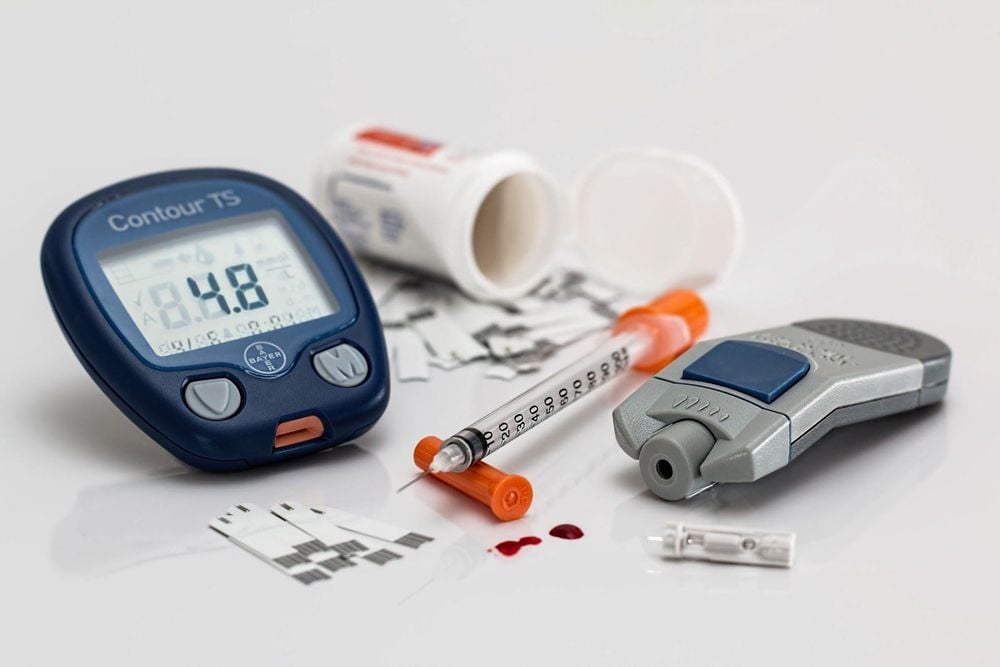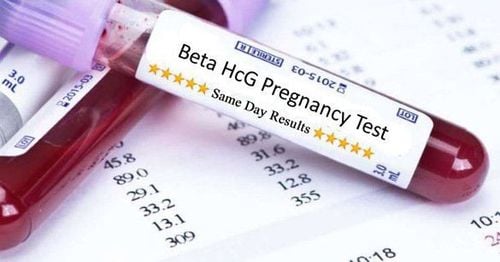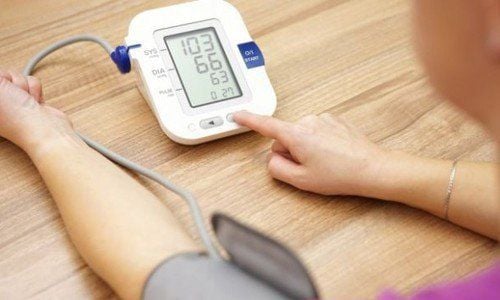This is an automatically translated article.
High blood pressure is a common and dangerous cardiovascular disease, but the disease process often occurs silently without symptoms, so many people still do not know they have high blood pressure until symptoms appear. clearly lead to complications and dangerous diseases of the heart, kidneys, brain, retina ... Currently, blood tests to diagnose high blood pressure are an effective method to help patients detect and diagnose high blood pressure. timely treatment.The article was professionally consulted by MSc Do Thi Hoang Ha - Doctor of Biochemistry, Laboratory Department - Vinmec Hai Phong International General Hospital. The doctor has 11 years of experience working in the field of clinical biochemistry.
1. What do you know about high blood pressure?
Blood pressure is the pressure exerted on the walls of the arteries to bring blood from the heart to the tissues of the body. Blood pressure is created by the force of contraction of the heart muscle and the resistance of the artery walls. Blood pressure depends on many factors such as the force of the heart pumping blood, the volume of blood pumped as well as the elasticity of the artery walls.Blood pressure is expressed as a fraction of systolic pressure over diastolic blood pressure, units are millimeters of mercury (mmHg), often written as a fraction, for example 130/80 mmHg
High blood pressure or hypertension Pressure can simply be understood as when the pressure of the blood acting on the artery wall is continuously elevated. Patients were diagnosed with high blood pressure when they had a systolic blood pressure of 140 mmHg and/or a diastolic blood pressure of 90 mmHg or higher.
2. Causes of high blood pressure
Most high blood pressure has no obvious cause, this type is often genetic and is more common in men. This is also known as idiopathic hypertension (idiopathic hypertension/hypertension) and accounts for 90-95% of casesHigh blood pressure cases where the cause is found is called secondary hypertension ( as a result of some other disease) usually accounts for 5-10% of patients with high blood pressure.

In addition, there are other causes leading to high blood pressure such as: Stress, eating too salty makes osmotic pressure increase, increasing blood volume leads to high blood pressure, using birth control pills, drugs colds, cocaine, alcohol, tobacco, sedentary people, menopausal women are also at risk of high blood pressure due to the aging process of artery walls
In addition, pregnant women often reach the third week of pregnancy. 20 often have gestational hypertension, severe can progress to pre-eclampsia with the cause of anemia, a lot of amniotic fluid, pregnancy with the first child...
3. Typical signs of high blood pressure
High blood pressure is a disease that can come to any person at any time, and often has no symptoms or is not obvious, even though it can be quite advanced. In addition, the symptoms of high blood pressure are also very complex and vary in severity from person to person.The following is a summary of the symptoms that people with high blood pressure often experience:
Dizziness, dizziness, ringing in the ears, loss of balance Chest pain, shortness of breath, fast heartbeat Red face, nausea, or nervousness Although The above are common manifestations of high blood pressure patients, but most of these manifestations are not clear and are only transient manifestations. Therefore, many high blood pressure patients only discover the disease when it has become severe, at this time complications of the heart, brain, retina, kidney .. can occur, causing danger to the patient.
4. Laboratory tests to diagnose high blood pressure
Hypertension is often detected only when the disease is advanced, but there are a number of laboratory tests that support the diagnosis of high blood pressure and sometimes help the clinician discover the cause of the disease.4.1 Blood tests to aid in the diagnosis of high blood pressure Urea blood tests : Urea in the blood is the major end product of protein nitrogen metabolism. Most of the urea produced by these metabolic pathways is eliminated by glomerular filtration, with 40-60% back diffusion into the blood, independent of the flow rate in the proximal tubule. Based on the urea index to identify kidney diseases such as kidney failure, kidney stones, glomerulonephritis, gastrointestinal bleeding, liver failure .. Blood uric acid test: is the final metabolic product of bases with nitrogenous nitrogen. purine, uric acid index increases to help diagnose kidney disease, gout, myeloproliferative disease.. Blood creatinine test: Creatinine will be completely filtered by the kidneys. This index is combined with urea used to assess kidney function. When this index increases, it is a valuable sign in the assessment of renal function in kidney diseases (chronic glomerulonephritis, acute tubular nephritis, acute or chronic renal failure). Blood electrolytes: Checking the Na+, Cl-, Ca2+ indexes, especially the K+ index, helps detect acute or chronic renal failure with oliguria. 4.2 Blood sugar test Blood sugar test to determine blood sugar index in diabetic patients because diabetes is one of the causes of high blood pressure.

Recognizing the symptoms of high blood pressure along with going to the doctor and doing general tests as well as paraclinical tests to diagnose high blood pressure help patients identify the condition early. so that it can be treated promptly to avoid causing unfortunate consequences.
When you have high blood pressure, to ensure the safety and peace of mind about your health condition, you should see a doctor at a reputable hospital. The Basic Hypertension Examination Package and the Advanced Hypertension Examination Package deployed at Vinmec International General Hospital will help determine the causes, complications and levels of hypertension, thereby taking treatment measures. appropriate for the medical condition.
Please dial HOTLINE for more information or register for an appointment HERE. Download MyVinmec app to make appointments faster and to manage your bookings easily.














